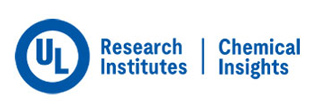
Climate, Building Resiliency & Human Health: How Extreme Weather Impacts Interior Design Materials
Chemical Insights Research Institute (CIRI) of Underwriters Laboratories Inc., a nonprofit organization, is dedicated to scientific research, publication, education, and communication on environmental exposures resulting from technologies and practices, their impact on human health and processes for reducing risks. CIRI provides actionable data and resources to help manufacturers, educators, healthcare providers, and consumers make informed environmental health decisions. Our work lets people around the world know what chemicals are in the air we breathe, the water we drink, and the products we interact with every day. Our leadership role is to provide science or knowledge to implement improved practices, alternative product design, and changes that enable safer products and healthier environments.
Tuesday, September 24, 2024 - 12:00pm to 1:00pm EDT
Our presentation focuses explores the impact of extreme weather events, with a particular emphasis on extreme heat, on the built environment. Participants will learn how to apply research findings to inform material selections that not only increase building resiliency but also improve human health, taking into account different market sectors, conditions, and competing priorities.
- Recognize the impact of extreme weather events on the built environment, with a specific focus on extreme heat, and understand their implications for occupant health and safety.
- Describe the role of interior design in lessening these impacts to enhance the welfare of occupants.
- Identify strategies in adapting the interior design process and decision-making to improve safety and health outcomes.
- Apply research findings to inform material selections that will increase building resiliency, enhance human health, and ensure occupant safety.
- Integrate adaptation in the design process with consideration of different market sectors, project site conditions, competing priorities, and the overarching goal of improving occupant welfare





